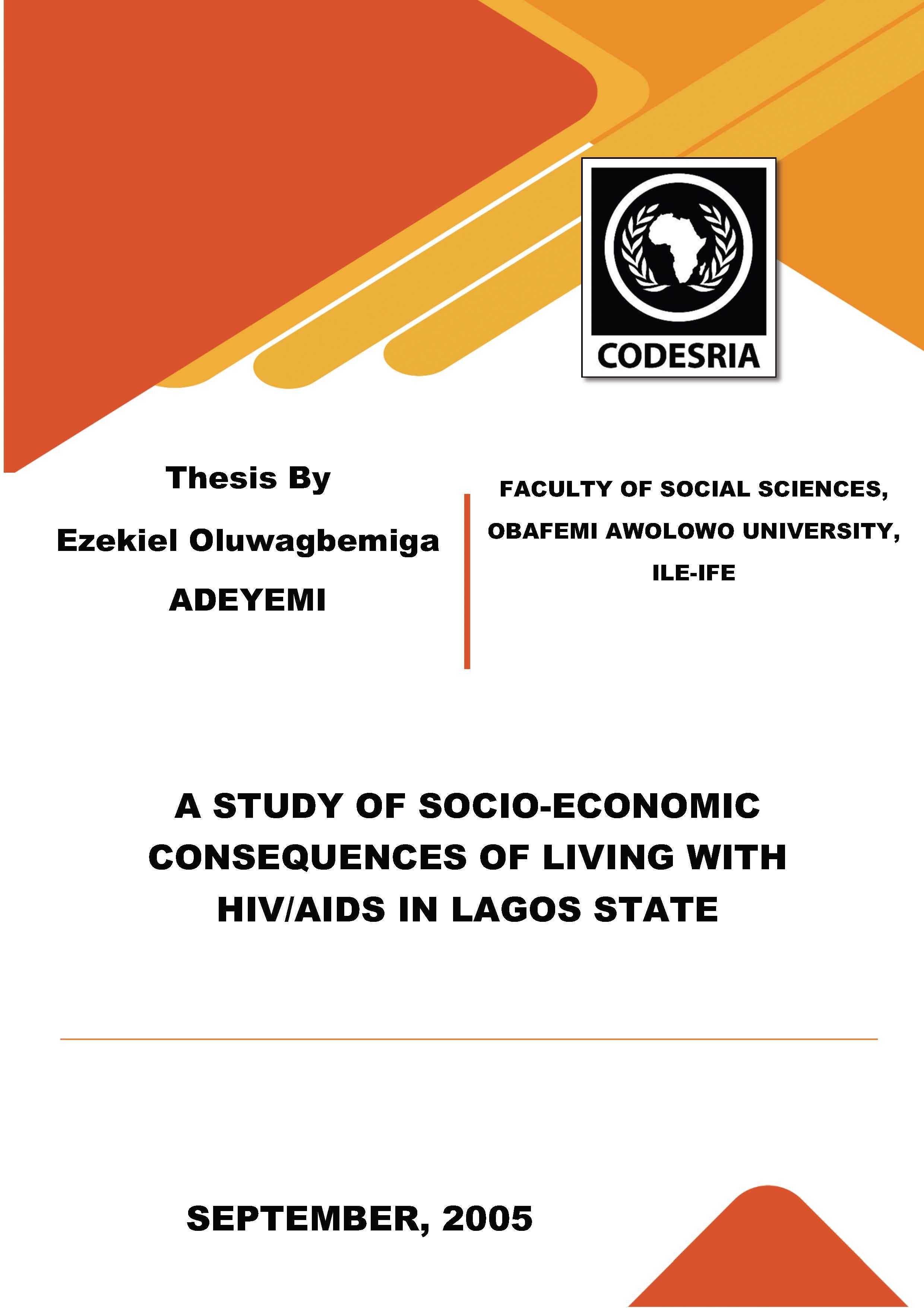A STUDY OF SOCIO-ECONOMIC CONSEQUENCES OF LIVING WITH HIV/AIDS IN LAGOS STATE
Mots-clés :
Aids, contraception, condoms, HIV, social implications, economic implications, sexual behaviour, NigeriaSynopsis
The objectives of the study were: (i) to examine the economic implications of living with HIV/AIDS. (ii) to examine the effect of living with HIV/AIDS on household support system. (iii) to evaluate the perception and attitudes of people towards people living with HIV/AIDS. (iv) to assess the sexual behaviour of people living with HIV/AIDS and its implication for the spread of the disease.
The study was carried out in Lagos State. Triangulation method was used for the data collection. Quantitative and qualitative data were collected. A multi-stage random sampling procedure was employed in administration of 1358 questionnaires to the general populace. For qualitative data, Focus Group Discussion (FGD) was used to collect information from people affected by AIDS (PABA), while In-depth interview was employed to collect information from 188 people living with HIV/AIDS through support groups in the State. The data collected from this survey was subjected to three levels of analysis, univariate, bivariate and multivariate analysis. The tools of analysis were logistic regression and ordinary least square regression which were employed to determine the relationship between dependent variables (extramarital sex, condom use and accepting status) and the selected independent variables.
There is high-risk sexual activity in the study area. Among the people living with HIV/AIDS, 66% of females and 44% of males are in age group 21-24 years. Finding also shows that older
Téléchargements






